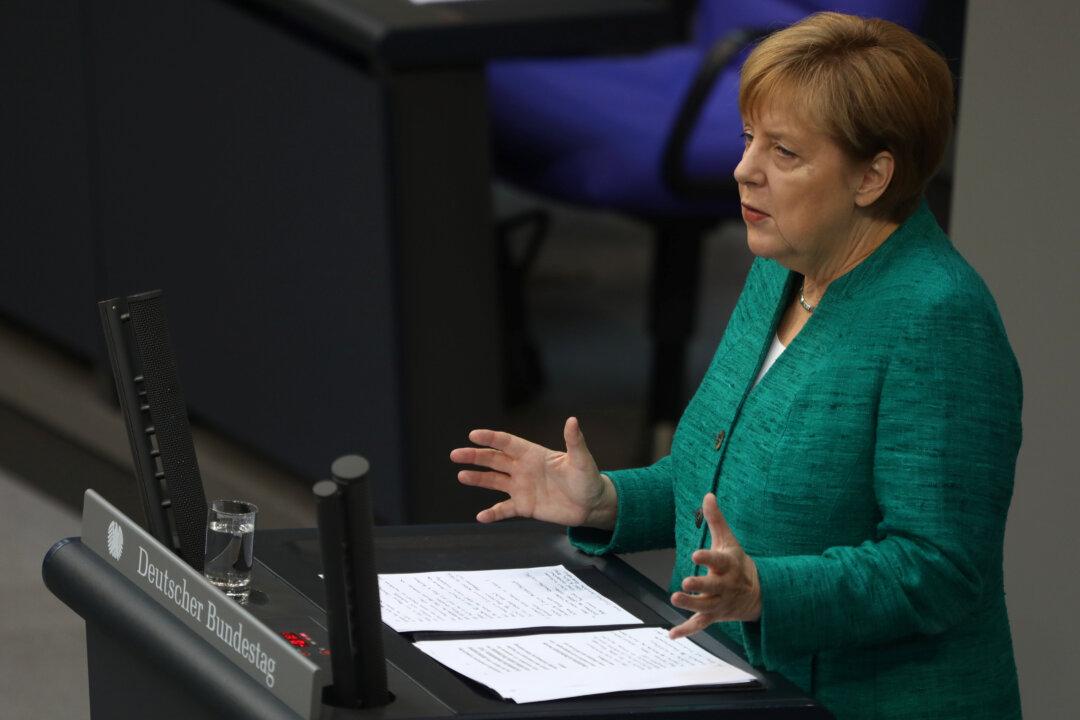BRUSSELS—Under severe pressure from conservative allies at home, German Chancellor Angela Merkel called on European leaders on June 28 to forge a common approach to migration, calling it a “make or break” issue for Europe.
Merkel was speaking in the German parliament before a European Union summit that started later in the day and was expected to be dominated by migration.





